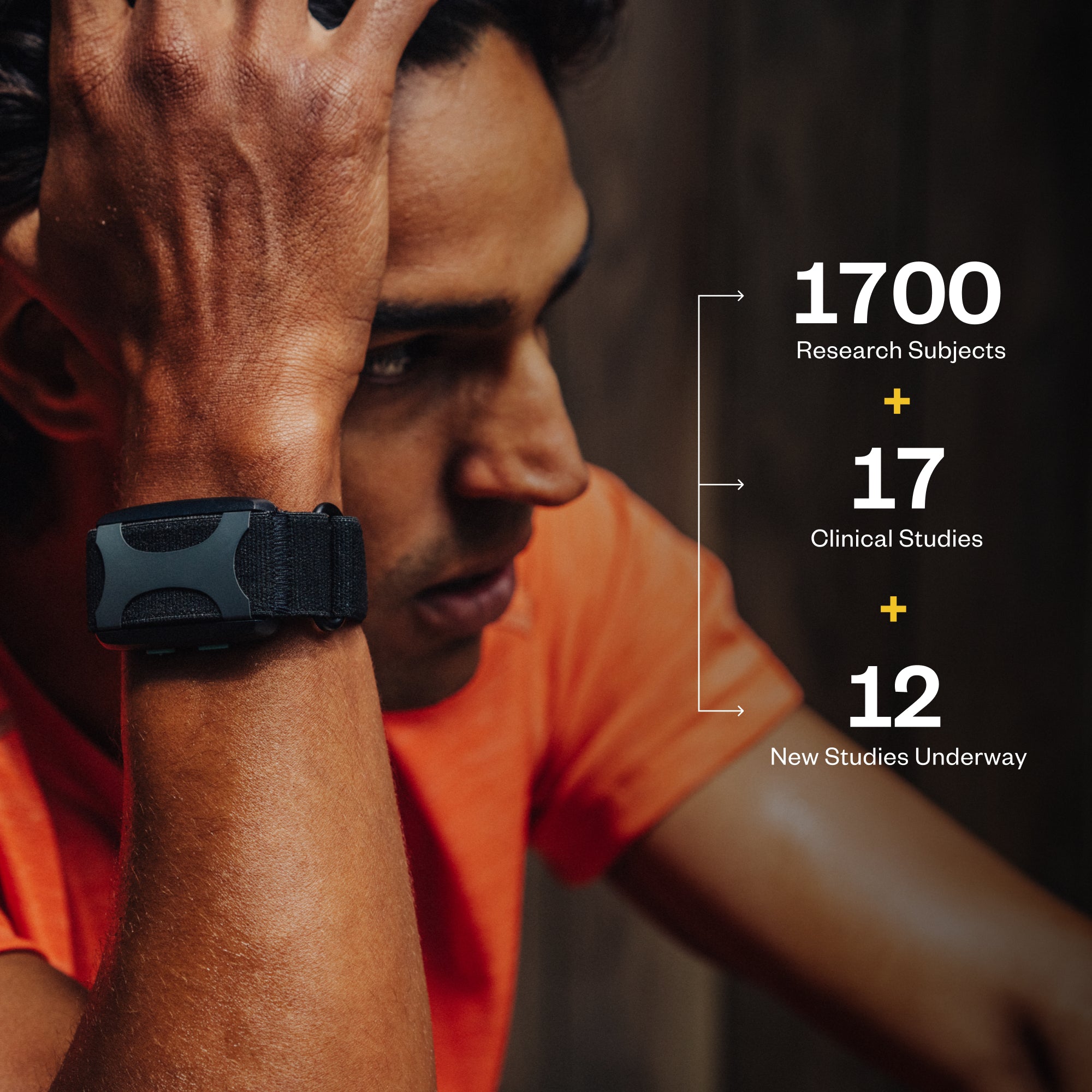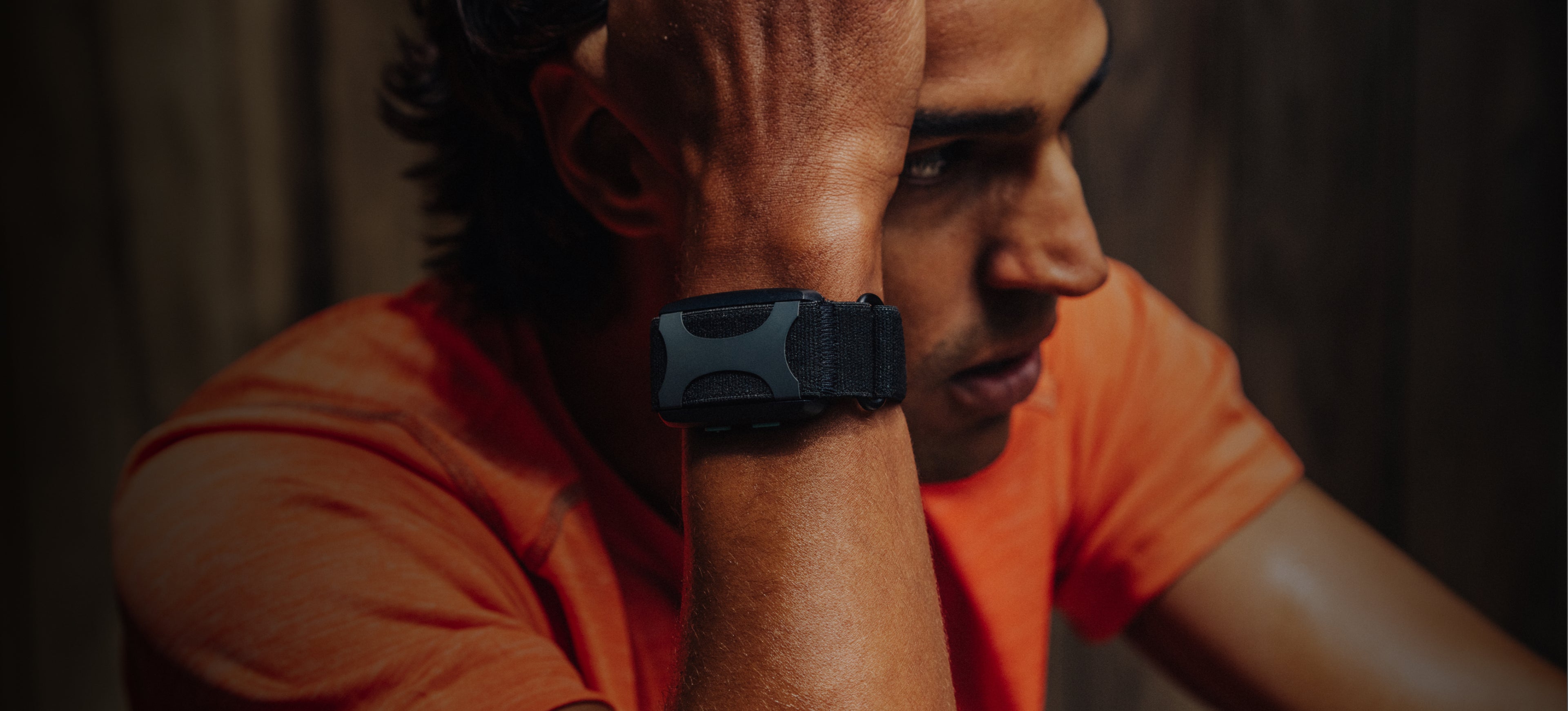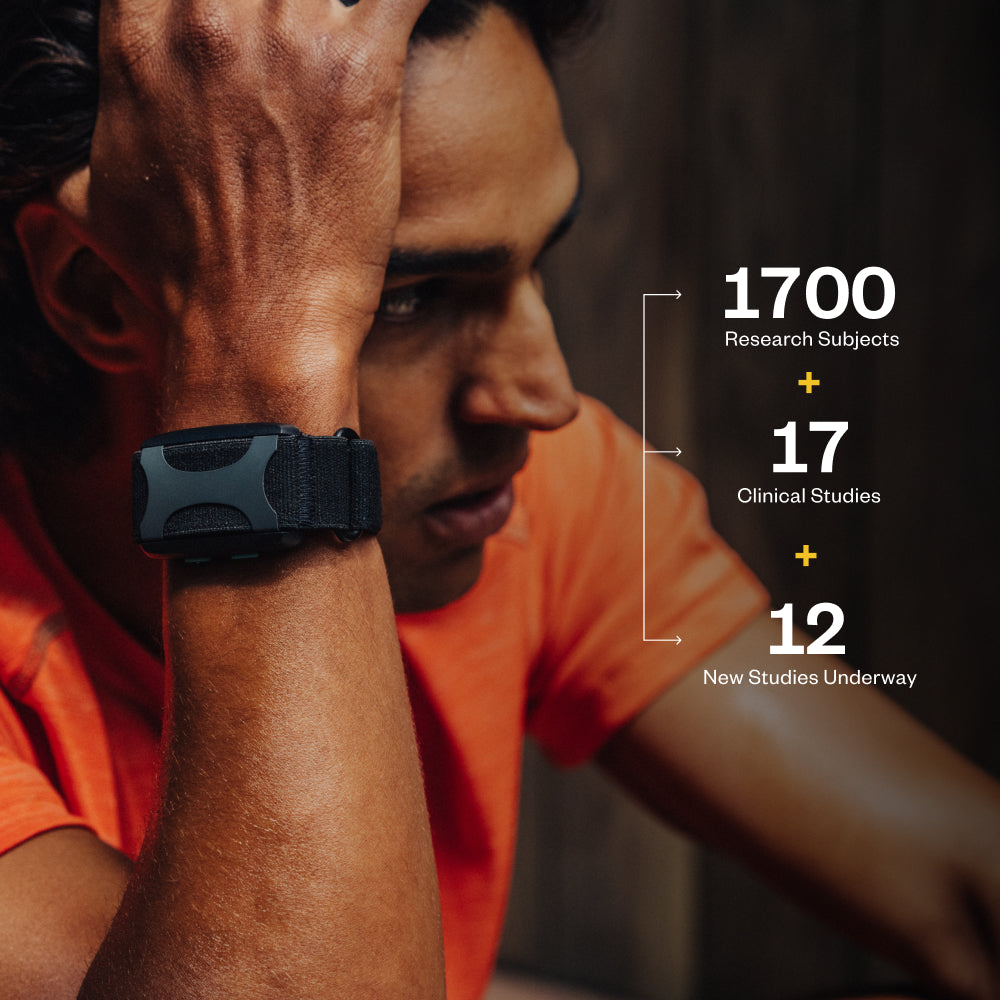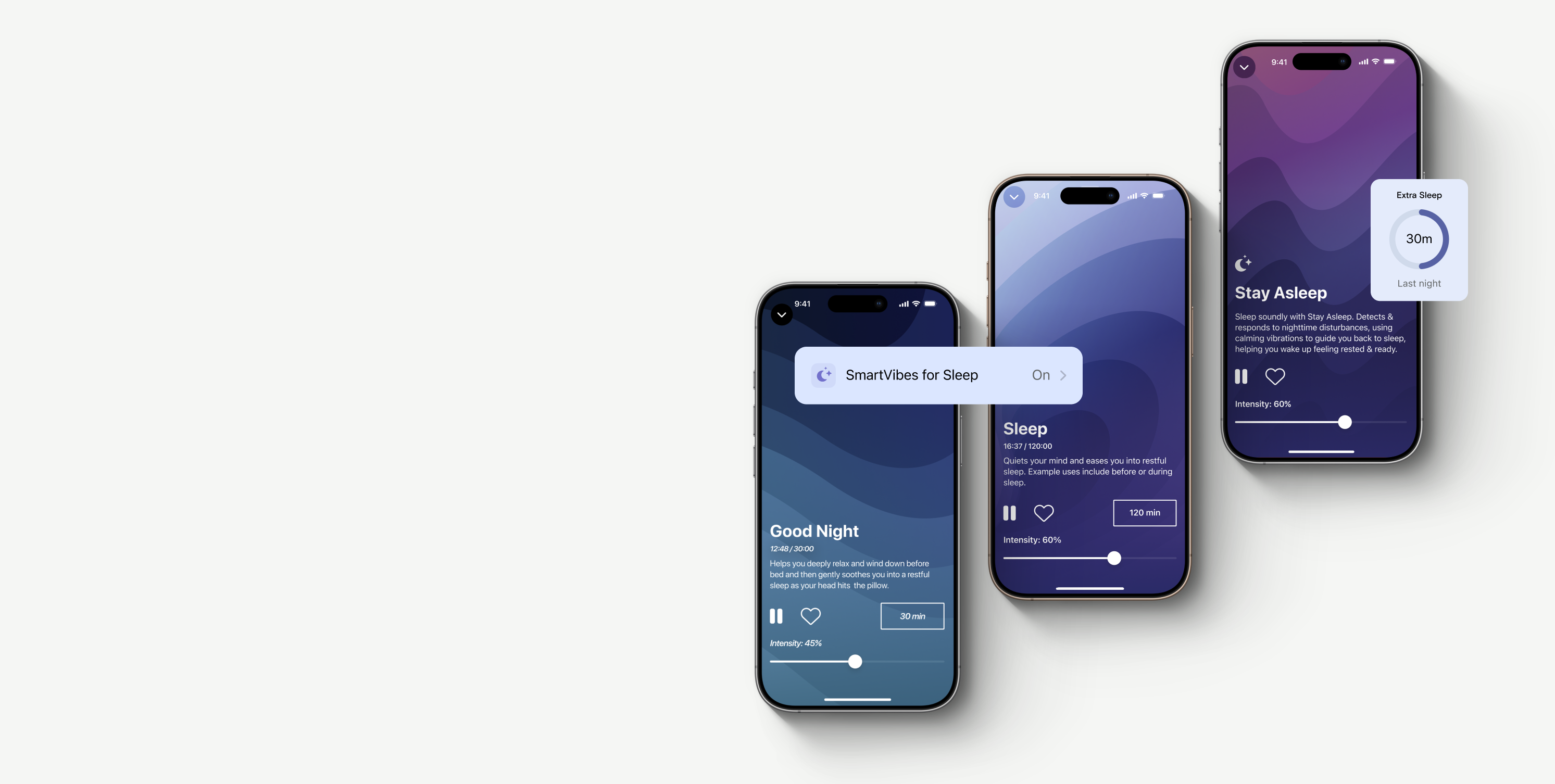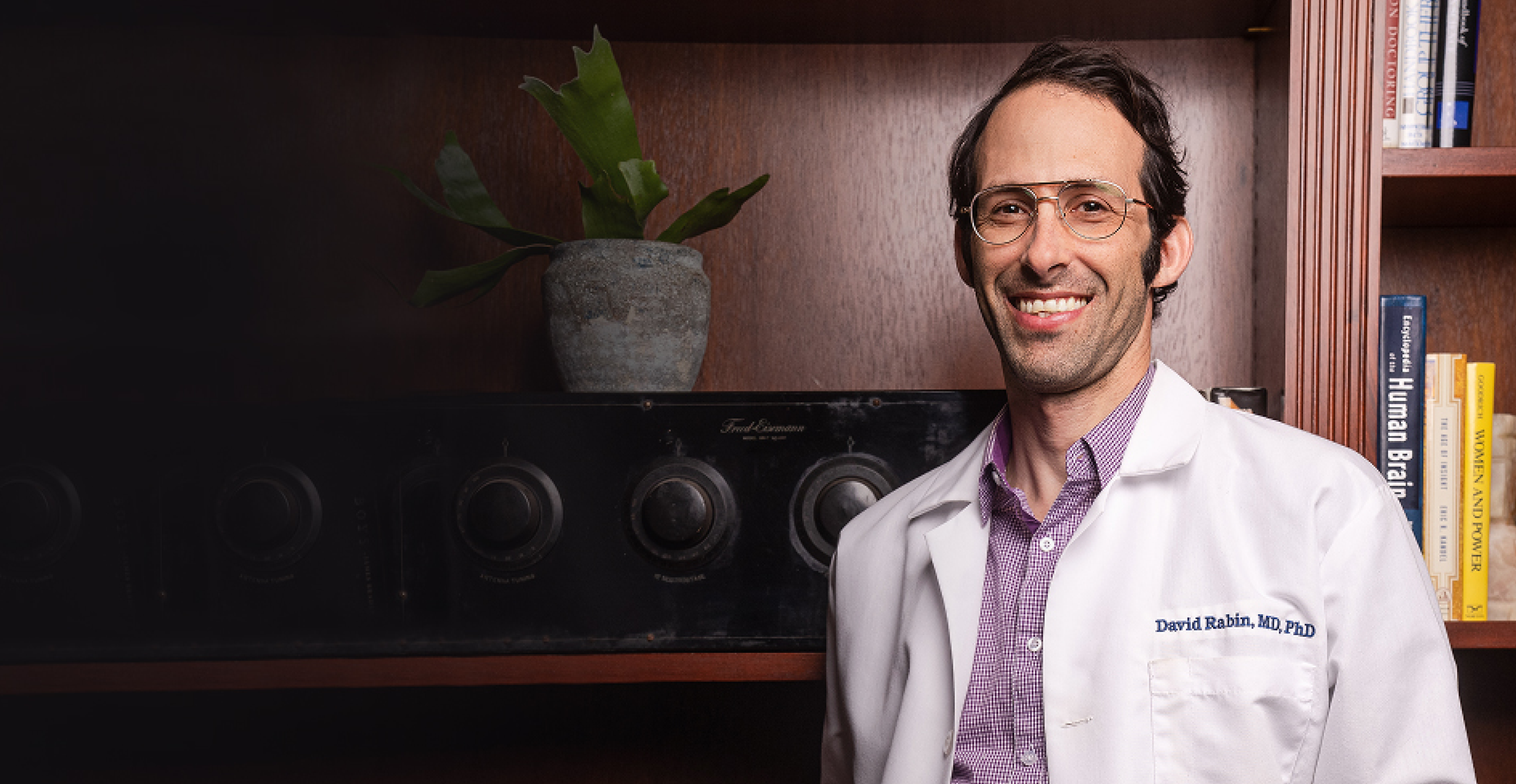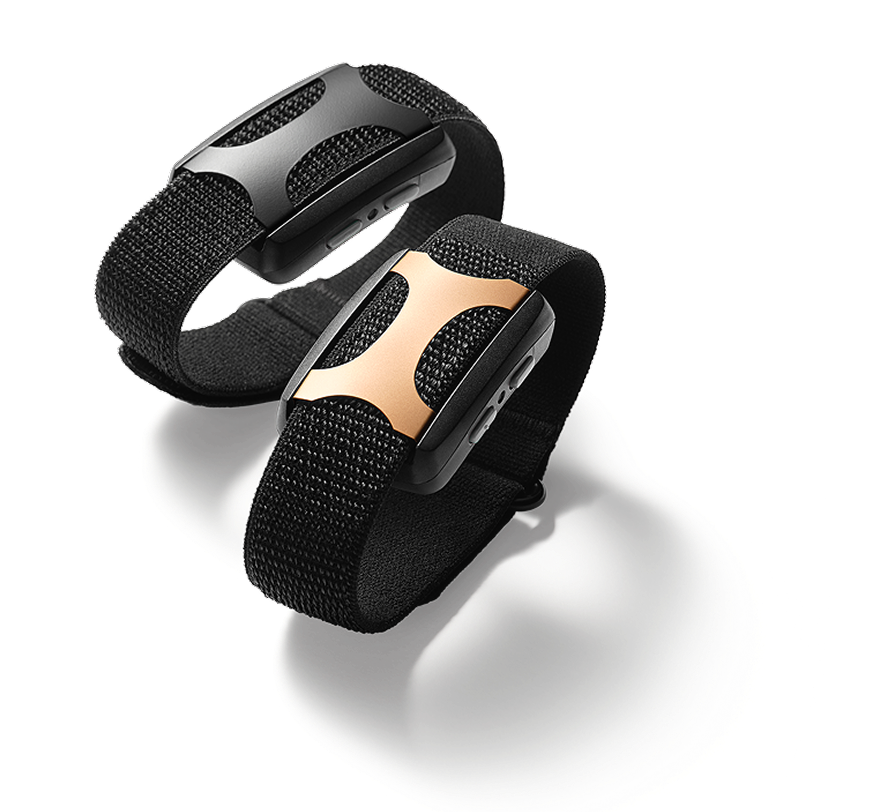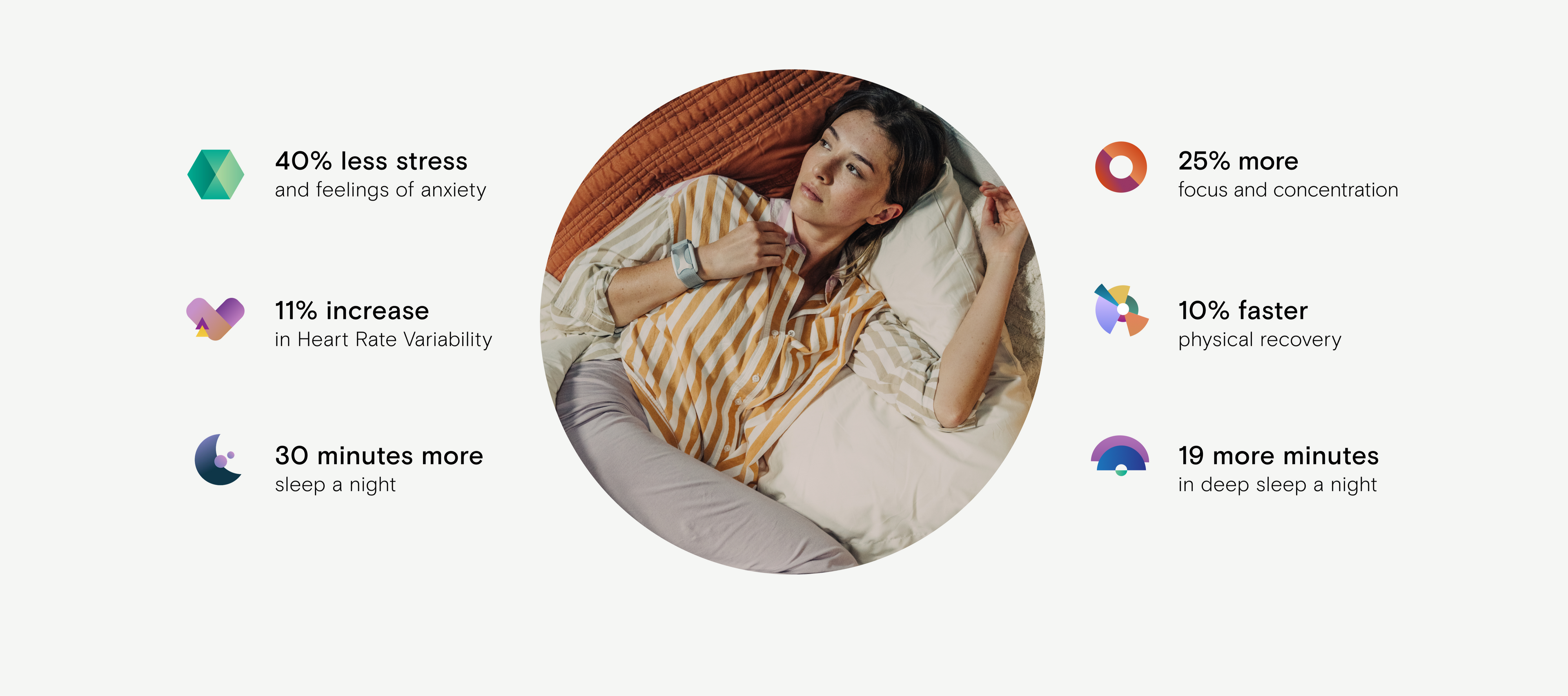The Science Behind Apollo
Award-winning Wearable






The Five Principles of Apollo Neuro
Born In A Science Lab

The Apollo Neuro technology originated from Dr. David Rabin MD, PhD’s research at the University of Pittsburgh and is based on several decades of scientific research into vibration frequencies and how they impact the body. As a neuroscientist and psychiatrist, Dr. Dave has always been fascinated by consciousness and our inherent ability to heal ourselves from illness and injury.
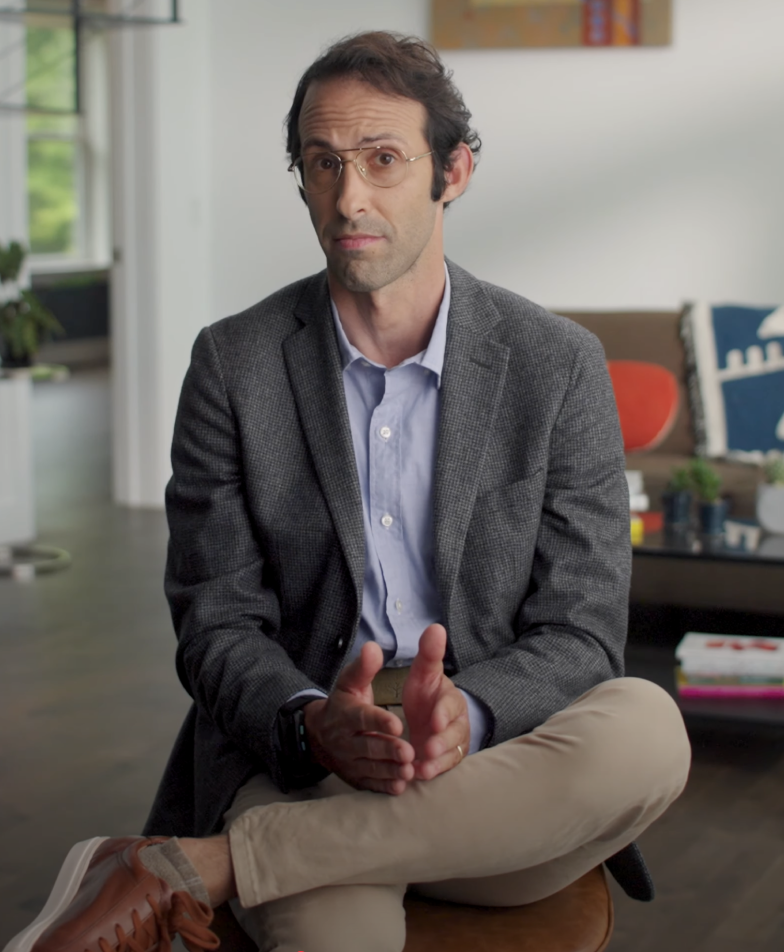
After dedicating his career to understanding the impact of chronic stress on our well-being over 15 years ago, he observed a core challenge that confronts every single one of us - healthy behavior changes will benefit us in the long term, but making those changes when we’re under chronic stress is really, really hard. The reason? Chronis stress itself.
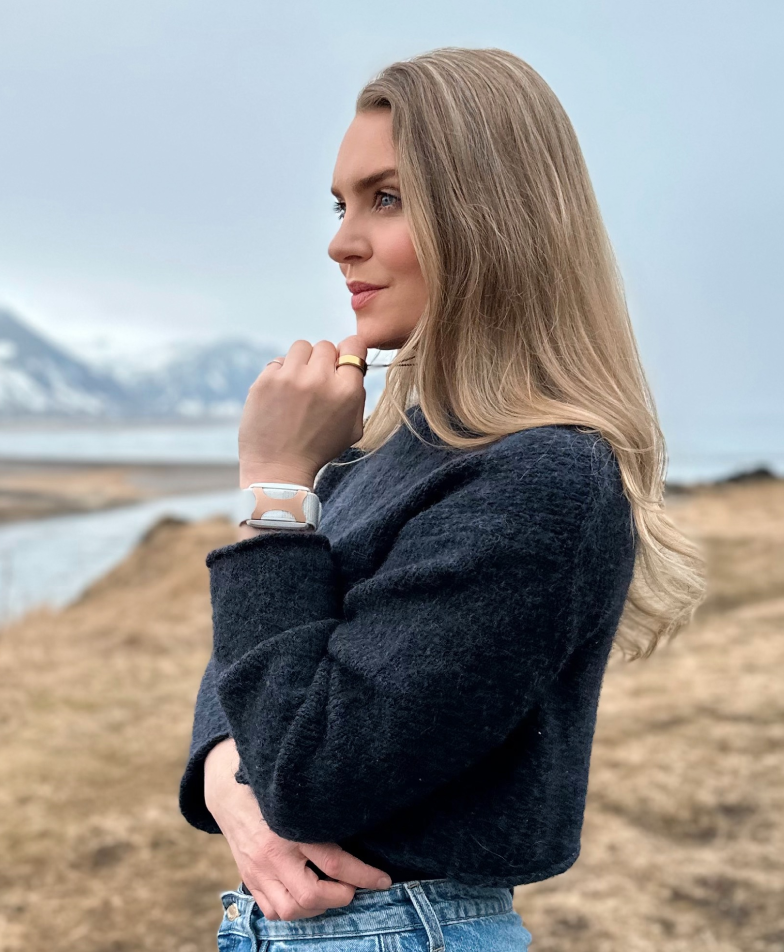
When we face stress, our brains tell our bodies the equivalent of “Hey, there’s a lion over there! Get out of danger!” That’s why we have trouble sleeping, low energy, and a hard time focusing - it’s like the nervous system is saying “run” or “fight” when we’re just trying to get through our day. Apollo restores balance to the nervous system, calming the body, and leaving us feeling safe and in control of how we feel.
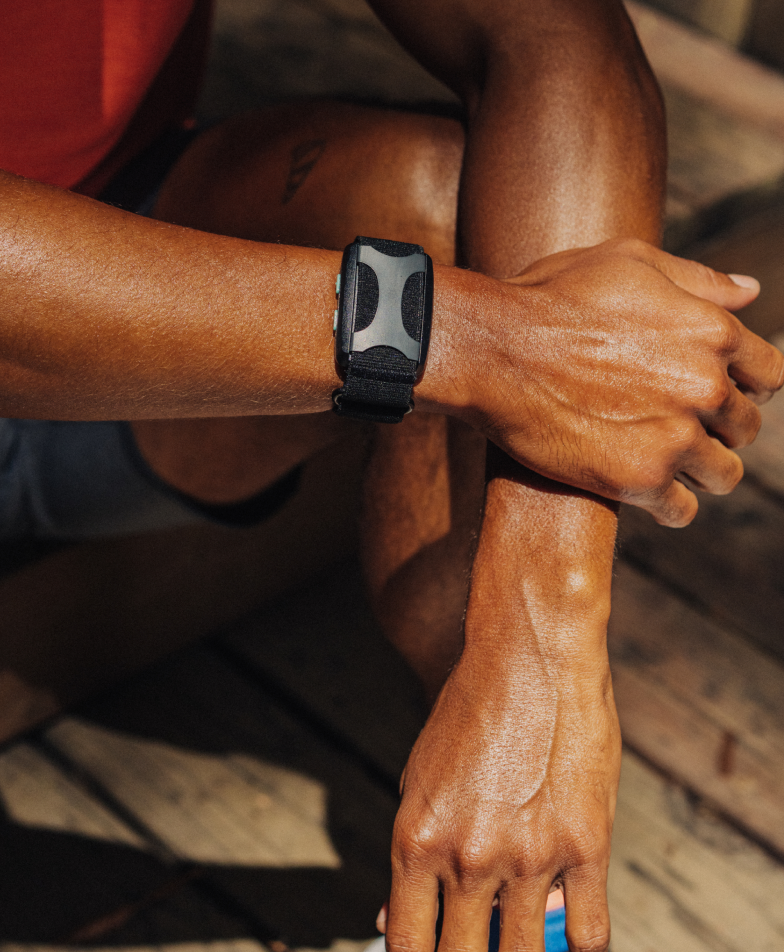
This made Dr. Dave wonder, could we use our body’s natural response to touch to restore balance to the nervous system, and if we could, would we be able to measure the change? The next big question was, could the feeling of safety be delivered to our bodies by sending soothing vibrations to our touch receptors with a wearable? The answer to both was yes – and Apollo Neuro was born!
The Research Behind Apollo and Stress
The Apollo wearable has been studied in over 1700 research subjects across 7 completed clinical studies, with 14 more underway. Findings so far show subjects experienced:
Sleep Up to 60 Minutes Longer with Apollo—
Powered by SmartVibes AI.
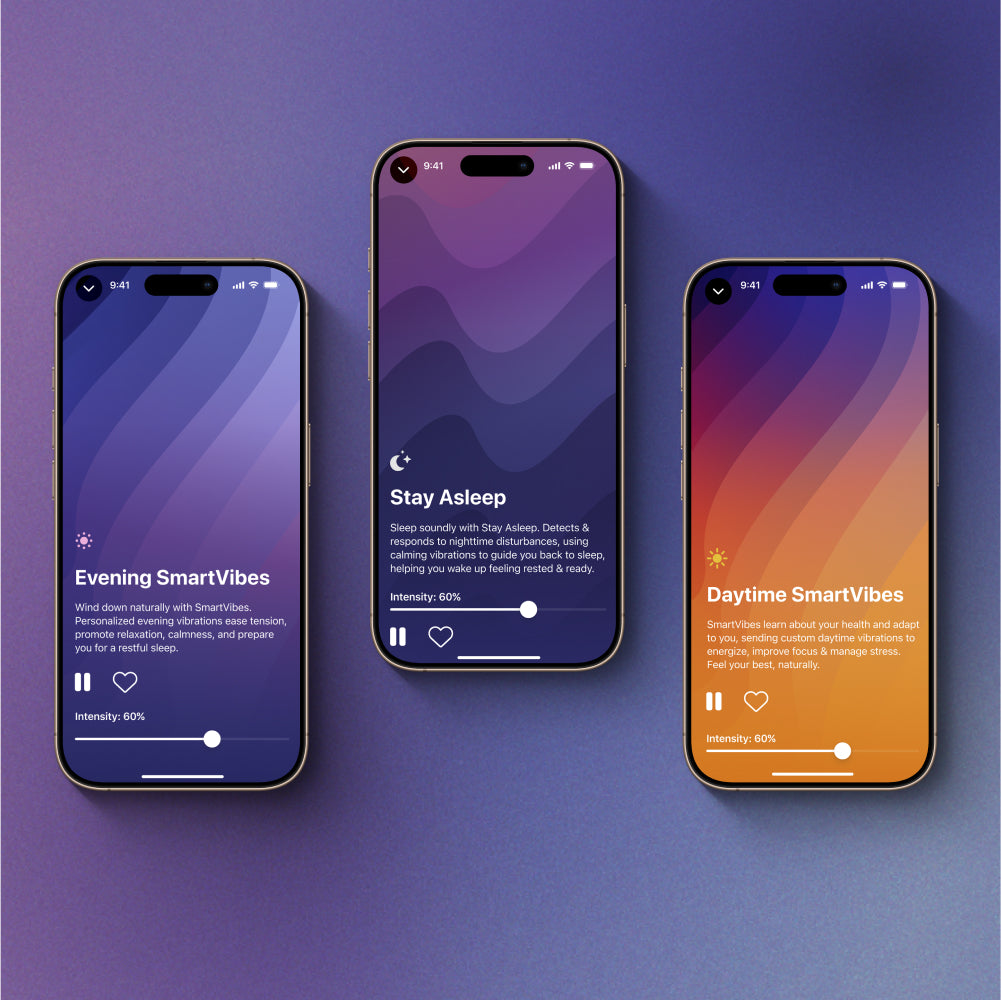
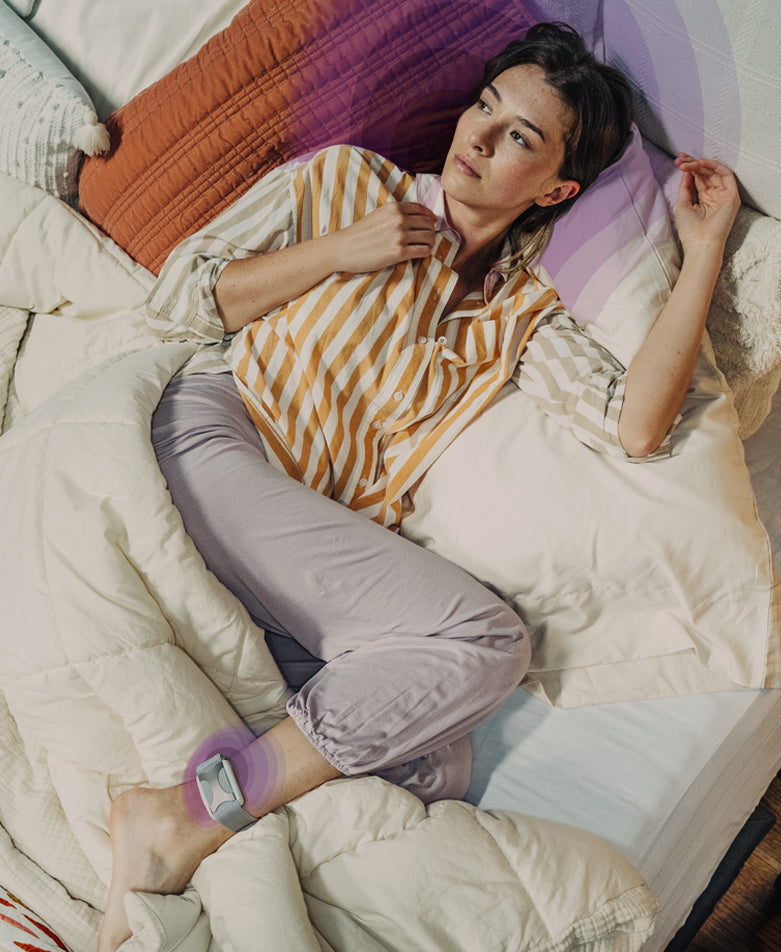
Wind down naturally with Apollo Evening SmartVibes. Personalized evening vibrations help to ease tension, promote relaxation, calmness, and prepare you for a restful night of sleep.
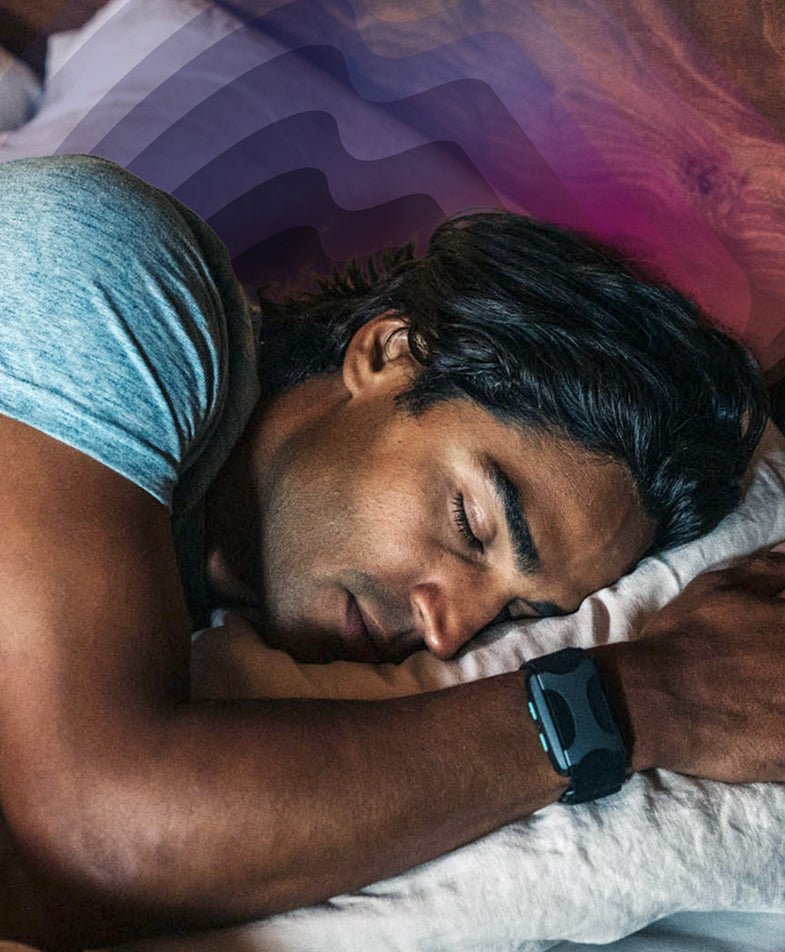
Apollo combines gentle, science-backed vibrations with the world’s most advanced AI sleep technology to help you fall asleep faster, stay asleep longer, and wake up feeling more refreshed.

A more personalized Apollo experience, Daytime SmartVibes learn about your health and adapt to you, sending custom daytime vibrations to energize, improve focus and manage your stress, helping you feel your best, naturally.


